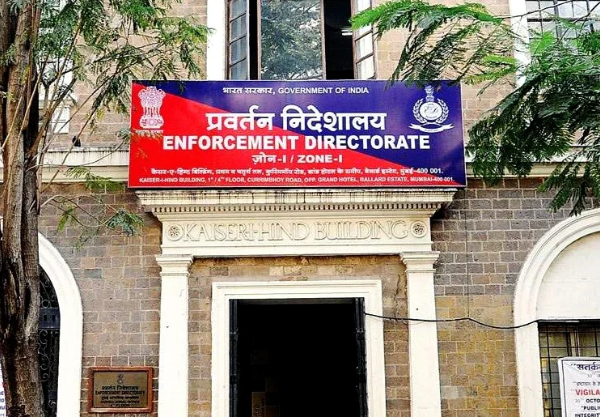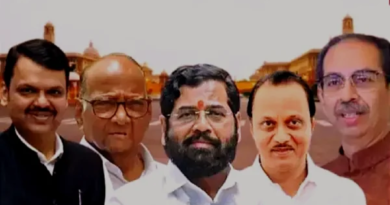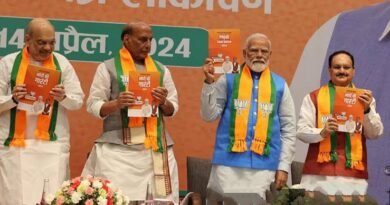ED Raids Political Parties
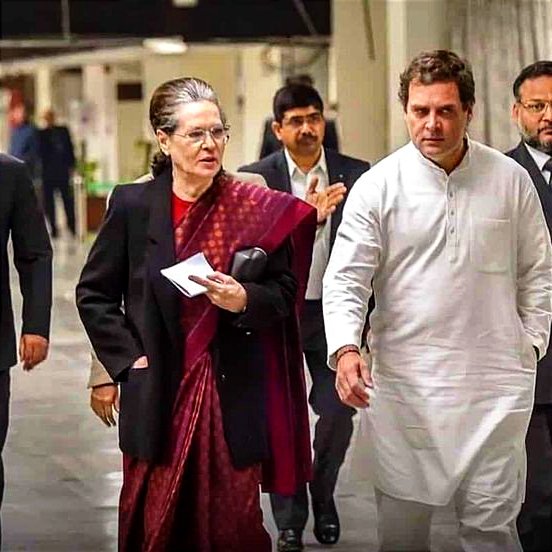
ED Raids Political Parties :
Since 2014, the ED has investigated 121 political figures, 115 of them are opposition leaders. Notable individuals like Sonia and Rahul Gandhi are also being investigated by the ED. According to a story in The Indian Express, certain opposition figures who joined the BJP had their investigations softened. ED has filed 95% of the cases against the Opposition leaders since 2014, according to a report by The Indian Express.
ED investigates to opposition
24 Congress leaders were the subject of ED official investigations between September 2014 and September 2022, as per The Indian Express report. Nine (Shiv Sena), eight (BJD), five (RJD, BSP, SP, and TDP each), three (AAP, INLD, and YSCRP), two (CPM, NC, and PDP), and one (AIADMK, MNS, BRS, and SBSP each) were followed by nineteen (TMC).
The court was asked to provide “pre-arrest” and “post-arrest” rules for politicians who are involved in non-violent situations by the petitioners. The petition was later denied by the Supreme Court, despite the Chief Justice having set a date for the matter to be heard.
Ahead of state Assembly elections in November, the Congress party also filed an application with the Election Commission, citing the ED’s abuse as a “political tool” after the directorate carried out several raids in Rajasthan, Madhya Pradesh, and Chhattisgarh.
What is ED
Implementing economic laws and fighting economic crimes in India is the duty of the Enforcement Directorate(ED), a domestic law enforcement and economic intelligence organization. It is part of the Indian government’s Ministry of Finance’s Department of Revenue.
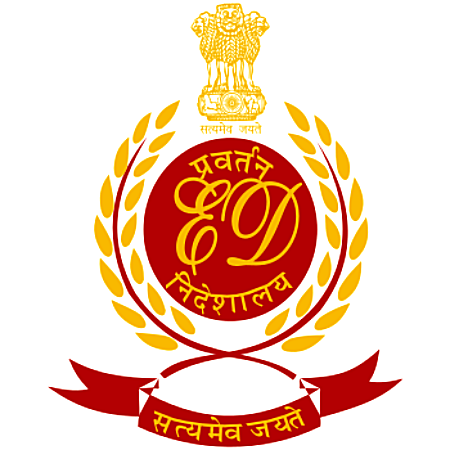
Agency Details
ED Formed: 1 May 1956 (67 years ago)
Headquarters: New Delhi, India
Regional offices: Kolkata, Mumbai, Chandigarh, Hyderabad
Minister responsible: Nirmala Sitharaman, Minister of Finance
Agency executive: Rahul Navin, IRS, Director Enforcement
Parent agency: Department of Revenue, Ministry of Finance
History of ED
This Directorate’s history dates back to May 1st, 1956, when the Department of Economic Affairs established a “Enforcement Unit” to handle violations of the Foreign Exchange Regulation Act of 1947 (FERA ’47) regarding exchange control laws. A Legal Service Officer working as the Director of Enforcement led this unit, which had its headquarters in Delhi. Three Inspectors from the Special Police Establishment and one officer on deputation from the Reserve Bank of India (RBI) provided support. There were two locations: Calcutta and Bombay.
This Unit was renamed the “Enforcement Directorate” in 1957, and a Madras branch was established. The Department of Economic Affairs gave way to the Department of Revenue in 1960 for the administrative administration of the Directorate. As time went on, FERA’ 47 was overturned and FERA, 1973 took its place. The Department of Personnel & Administrative Reforms retained administrative authority over the Directorate for a brief duration of four years (1973–1977). Currently, the Department of Revenue, Ministry of Finance, Government of India, has administrative jurisdiction over the Directorate.
The regulatory statute FERA, 1973 was repealed along with the economic liberalization movement, and its place was taken by the Foreign Exchange Management Act, 1999 (FEMA), which went into effect on June 1st, 2000. Furthermore, the Prevention of Money Laundering Act, 2002 (PMLA) was passed in accordance with the International Anti Money Laundering framework, and ED was given the responsibility of enforcing it as of July 1st, 2005. The government recently passed the Fugitive Economic Offenders Act, 2018 (FEOA), and ED is tasked with enforcing it starting on April 21, 2018, in response to the rise in cases involving economic offenders seeking refuge abroad.
What ED do ?
The Directorate’s statutory duties include upholding the following Acts:

1. The Prevention of Money Laundering Act, 2002 (PMLA):
This criminal law was passed in order to stop money laundering, to provide for the recovery of property generated through or related in money laundering, as well as for other related or incidental reasons. The ED has been tasked with enforcing the PMLA’s requirements by conducting investigations to identify assets obtained through criminal activity, temporarily seizing the property, and ensuring that the criminals face legal action and that the Special court seizes the property.
2. The Foreign Exchange Management Act, 1999 (FEMA):
It is a civil law that was passed in order to unify and modify the rules related to allowing payments and trade with other countries, as well as to encourage the stable growth and upkeep of India’s foreign exchange market. The Enforcement Directorate (ED) has been tasked with investigating possible violations of foreign exchange laws and regulations, making decisions, and punishing individuals found to have broken the law.
3.The Fugitive Economic Offenders Act, 2018 (FEOA):
This law was created in order to discourage economic offenders from avoiding Indian legal proceedings by avoiding Indian court jurisdiction. It is a statute that requires the Directorate to confiscate the assets of people who have fled India and are considered fugitive economic offenders, with the intention of turning them over to the Central Government for the confiscation.
4. The Foreign Exchange Regulation Act, 1973 (FERA):
The primary duties under the now-repealed FERA are to decide Show Cause Notices issued under the Act up until 31.5.2002 for alleged infractions that may result in penalties being imposed and to prosecute cases brought under the Act in the relevant courts.
5. Sponsoring agency under COFEPOSA:
This Directorate may support cases of preventive detention in relation to FEMA violations under the Conservation of Foreign Exchange and Prevention of Smuggling Activities Act, 1974 (COFEPOSA).
See Below Details :

